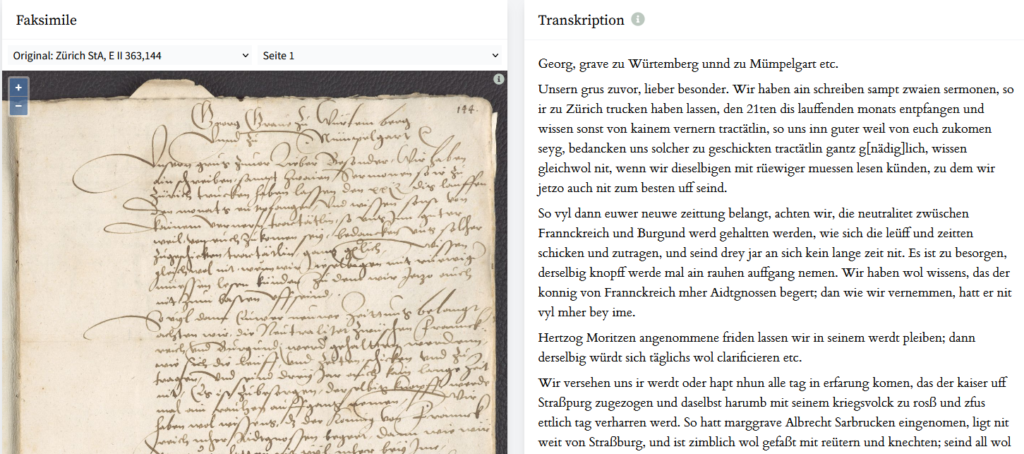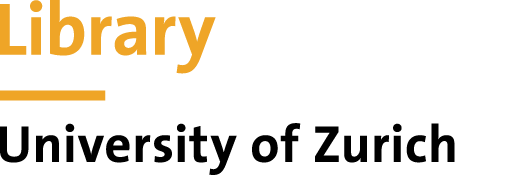
The Center for Digital Editions & Analytics picks up speed
Read this post in
 Deutsch
Deutsch
Last Wednesday June 22, Vice President Christian Schwarzenegger officially launched the Center for Digital Editions & Analytics (ZDE) at the kick-off event in the Digital Library Space. And the numerous participants to the event made it clear: the interest in this new center, initiated jointly by the University Library and the Zentralbibliothek Zürich, is great.
The beginning
People responsible for digital edition projects had been expressing the wish for a joint center at the UZH for several years before the center was finally launched. Despite the large number of such projects, the UZH had lacked visibility, important networking opportunities, and a central coordination office. Without this, a great potential for research in the humanities threatened to be wasted: digital editions not only generate new insights, but also make extensive source material for further research available.

First steps
Various parties were thus looking forward to February 2022, when the Center for Digital Editions and Analytics finally started after an intensive concept and application phase.
Even before the coordinator of the center assumed his position, the ZDE already had to deal with its first inquiry. A digital edition project at the Romanisches Seminar asked for help: The project leaders planned for a follow-up and were looking for project partners for the technical implementation. Within a short period of time, the ZDE succeeded in connecting the project leaders with the technical departments at the Text Crunching Center and at S3IT, thus assisting in the preparation of the project proposal. Facilitating such collaborations and supporting interdisciplinary research collaboration is an important goal of the ZDE.
In addition to these initial operational activities, a Monitoring and Steering Committee was also established in the spring and contact was made with the leadership of the national repository for humanities research data (the DaSCH). In collaboration with the DaSCH, the ZDE will contribute to the sustainability of the source collections and research data resulting from the edition projects. To this end, the ZDE supports the projects in questions concerning the long-term archiving of their data at the DaSCH.
An important milestone
A long-awaited step has now come true with the launch of the ZDE website. For the first time, the diverse and numerous digital edition projects (currently 14 projects) are visible at one glance – with the most important information about the respective project contents, the technical tools used and the possibilities for reuse. The launch of the website provided the occasion for the kick-off event, which was attended by about forty people from UZH, ZB and ETH. Further events for networking and exchange within the diverse and very interdisciplinary digital edition community are already being planned.
Melanie Röthlisberger, Open Science Services

Comments are closed, but trackbacks and pingbacks are open.